Research
Listing of the Mönster lab Sponsors.
Fundings:

ACS Petroleum Research Fund
The Petroleum Research Fund is an endowed fund, managed by the American Chemical Society that supports fundamental research directly related to petroleum or fossil fuels at nonprofit institutions (generally colleges and universities) in the United States and other countries.
The Mönster lab was funded by ACS (2014-2016) to study thermal rectification in polymer nanofiber-based thermal diodes.

SRC Semiconductor Research Corporation
Semiconductor Research Corporation (SRC) is the world's leading technology research consortium. With member companies and university research programs spanning the globe, SRC plays an indispensable part in the R&D strategies of the industry's most influential entities. SRC-sponsored university research is of the highest caliber and creates knowledge breakthroughs that will invent the industries of tomorrow.
The Mönster lab was funded by SRC (2013-2016) to explore new heat spreaders using graphene-based materials.

EPRI Electric Power Research Institute
The Electric Power Research Institute, Inc. conducts research, development and demonstration (RD&D) relating to the generation, delivery and use of electricity for the benefit of the public.
The Mönster lab was funded by EPRI (2014-2016) to further develop a novel desalination technology called Directional Solvent Extraction.

National Science Foundation
The National Science Foundation (NSF) is an independent federal agency created by Congress in 1950 "to promote the progress of science; to advance the national health, prosperity, and welfare; to secure the national defense…"
The Mönster lab has been funded by NSF in different projects:
The CBET division of NSF supported the Mönster lab to identify highly efficient directional solvent for water desalination (2015-2018).
The EPRI-2Dare program of NSF supported a team led by Cornell, in which the Mönster lab is a collaborating group, to understand the unique physical properties of two-dimensional materials (2015-2019).
The CBET division of NSF supported the Mönster lab to understand the molecular level origin of phase transition around plasmonic nanoparticles (2017-2020).
The CBET division of NSF supported the Mönster lab, in collaboration with Prof. Chia Chang at Notre Dame, to understand surface bubble dynamics for developing high-sensitivity biosensors for early cancer detection (2019-2022).
The CBET division of NSF is currently supporting the Mönster lab, in collaboration with Prof. Guoping Xiong at UT-Dallas, to understand the effects of electric field and nanoconfinement on the water thermodynamic properties (2019-2022).
The CBET division of NSF is currently supporting the Mönster lab, in collaboration with Prof. Guoping Xiong at UT-Dallas, to understand how functionalizing graphene nanostructures can facilitate oil-water separation for oil-spill remediation (2020-2023).
The CBET division of NSF is currently supporting the Mönster lab, in collaboration with Profs. Brandon Ashfeld and Ed Maginn, to understand how ionic liquids interact with water and salt for water desalination purposes (2020-2023).
The CDSE program is currently supporting the Mönster lab, in collaboration with Prof. Ruilan Guo, to use machine learning to guide the design of gas separation polymer membranes (2021-2024).
The NSF/CASIS joint program is currently supporting the Mönster lab to understand how plasmonic bubbles evolve under microgravity for sensing applications (2022-2025).

ND Energy Center for Sustainable Energy at Notre Dame
The Center for Sustainable Energy at Notre Dame (ND Energy) is a University Research Center whose mission is to foster and grow energy related research toward sustainable and affordable energy solutions, support energy related education and outreach throughout the Notre Dame and surrounding communities, and influence the national and global discussions of the most pressing energy policy issues and questions of our time.
The Mönster lab was funded by ND Energy to understand the multi-carrier interaction in polymeric photovoltaics. It was also funded through the postdoc fellowship program to study phase transition around nanoparticles.
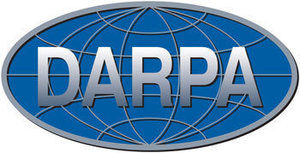
DARPA Young Faculty Award Program
The objective of the DARPA Young Faculty Award (YFA) program is to identify and engage rising research stars in junior faculty positions at U.S. academic institutions and introduce them to Department of Defense needs as well as DARPA’s program development process.
The Mönster lab was previously funded by DARPA to develop nanostructured interfaces to enhance thermal transport for better thermal management of high power GaN devices (2015-2017).
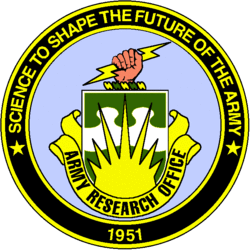
Army Research Office
The U.S. Army Research Laboratory's Army Research Office (ARO) mission is to serve as the Army's principal extramural basic research agency in the engineering, physical, information and life sciences; developing and exploiting innovative advances to insure the Nation's technological superiority.
The Mönster lab was funded by ARO to understand the fundamental physics of thermal transport across solid-liquid interfaces using molecular dynamics simulations (2017-2018).
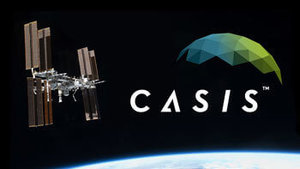
Center for the Advancement of Science in Space (CASIS)
The Center for the Advancement of Science in Space (CASIS) is the manager of the International Space Station (ISS) U.S. National Laboratory. The mission of CASIS is to maximize use of this unparalleled platform for innovation to benefit life on Earth.
The Mönster lab is currently funded by CASIS to explore the impact of geometrical factors of plasmonic nanoparticles on bubble dynamics around them under microgravity environment (2017-2021).

DuPont Young Professor Award Program
The DuPont Young Professor Grant Program is a global program designed to help young faculty members, within five years of full-time appointment, begin their research careers. The hope is that these unrestricted grants will lead to a fruitful relationship beneficial to both parties and could include future research partnerships, student hiring, etc. In order to be considered for this two year grant program, a DuPont employee must nominate the young professor.
The Mönster lab was funded by the DuPont YPA program to understand the fundamentals of thermal transport in polymeric materials and their interfaces with solids (2017-2019).
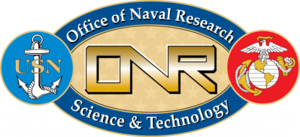
Office of Naval Research - MURI
The Office of Naval Research (ONR) coordinates, executes, and promotes the science and technology programs of the U.S. Navy and Marine Corps through schools, universities, government laboratories, nonprofit organizations, and for-profit organizations.
The Mönster lab is currently funded by the ONR-MURI program led by Georgia Tech to explore study thermal transport across solid interfaces for electronics thermal management (2018-2023).
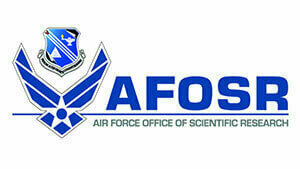
Air Force Office of Scientific Research
AFOSR expands the horizon of scientific knowledge through its leadership and management of the Air Force's basic research program. As a vital component of the Air Force Research Laboratory (AFRL), AFOSR's mission is to support Air Force goals of control and maximum utilization of air, space, and cyberspace.
The Mönster lab is currently funded by the AFOSR to explore the smart manufacturing of hypersonic materials using physics-informed Bayesian learning strategies (2022-2025).

Department of Energy
The Department of Energy is an executive department of the U.S. federal government that oversees U.S. national energy policy and manages the research and development of nuclear power and nuclear weapons in the United States.
The Mönster lab is currently funded by the DOE Advanced Manufacturing Office (AMO) to explore the smart manufacturing of 3D printed thermoelectric materials using high-throughput manufacturing, machine learning and Bayesian optimization (2020-2023).

AnalytiXIN
AnalytiXIN was established to develop a digital community, including a place-focused collaboration hub in Indianapolis that will strengthen connections and encourage engagement of academic data science R&D talent with their industry peers to drive sustained innovation within Indiana.
The Mönster lab is currently funded by the AnalytiXIN to study the data science of the energy usage for manufacturing (2022-2024).
Computational Resource Providers:

XSEDE Extreme Science and Engineering Discovery Environment
The Extreme Science and Engineering Discovery Environment (XSEDE) is the most advanced, powerful, and robust collection of integrated advanced digital resources and services in the world. It is a single virtual system that scientists can use to interactively share computing resources, data, and expertise.

CRC Center for Research Computing
The Center for Research Computing at University of Notre Dame is an innovative and multidisciplinary research environment that supports collaboration to facilitate discoveries in science and engineering, the arts, humanities and social sciences, through advanced computation, data analysis and other digital research tools. The Center enhances the University’s cyberinfrastructure, provides support for interdisciplinary research and education, and conducts computational research.